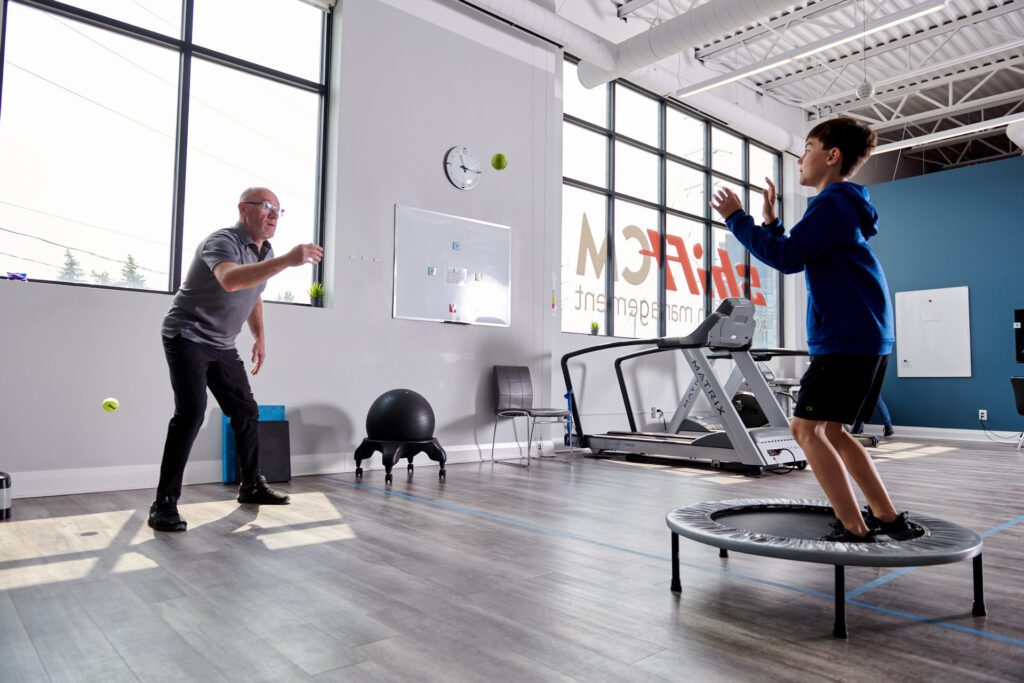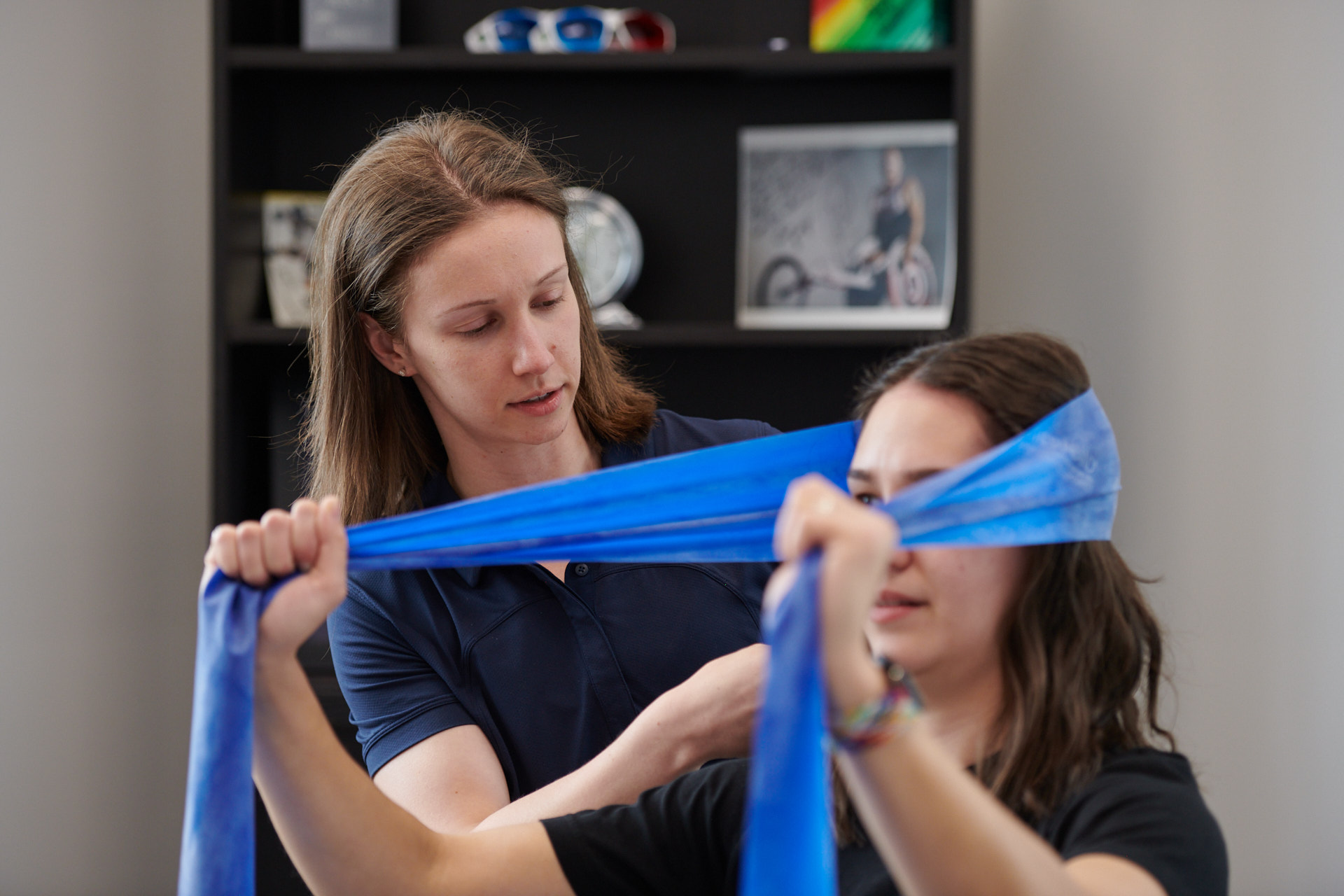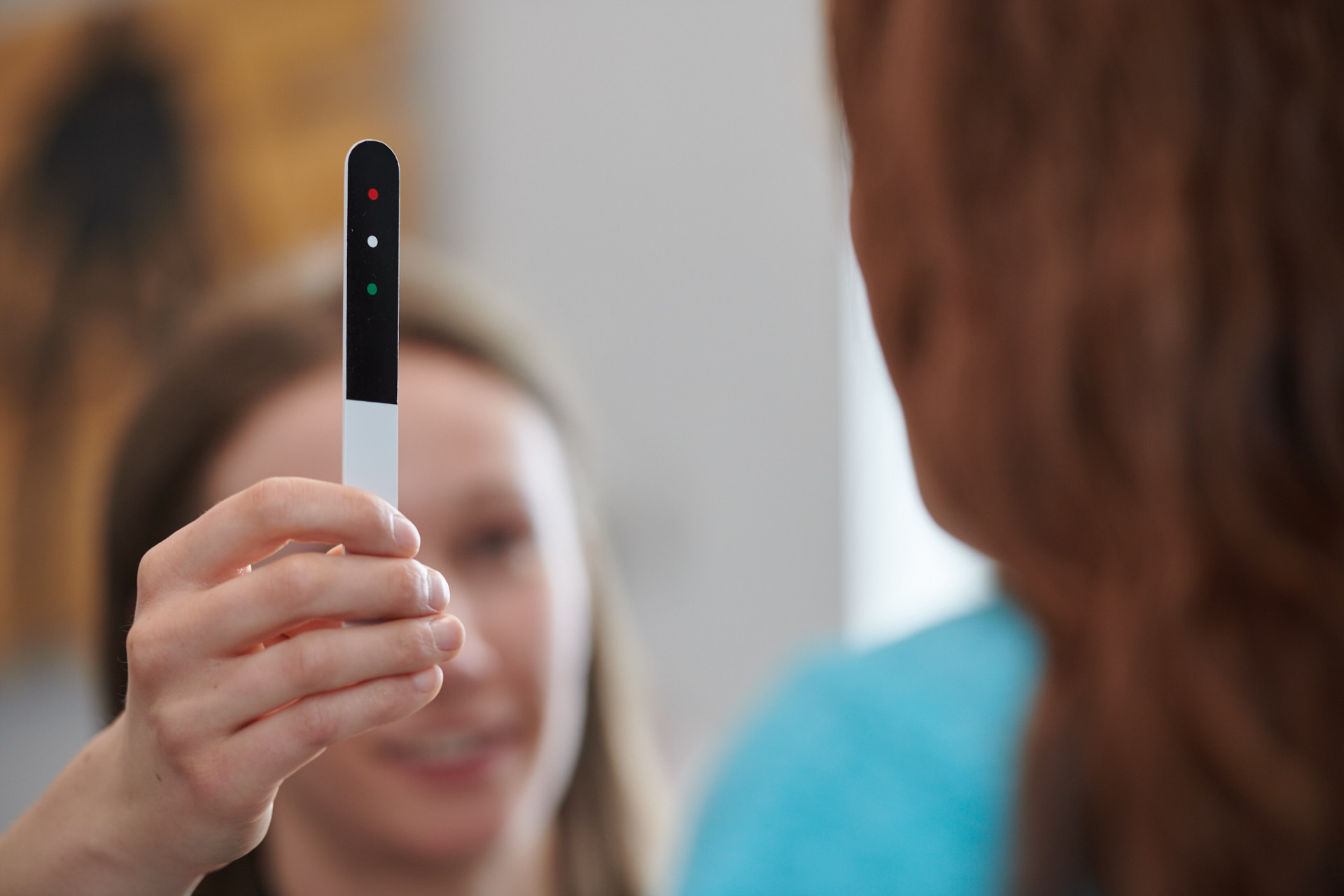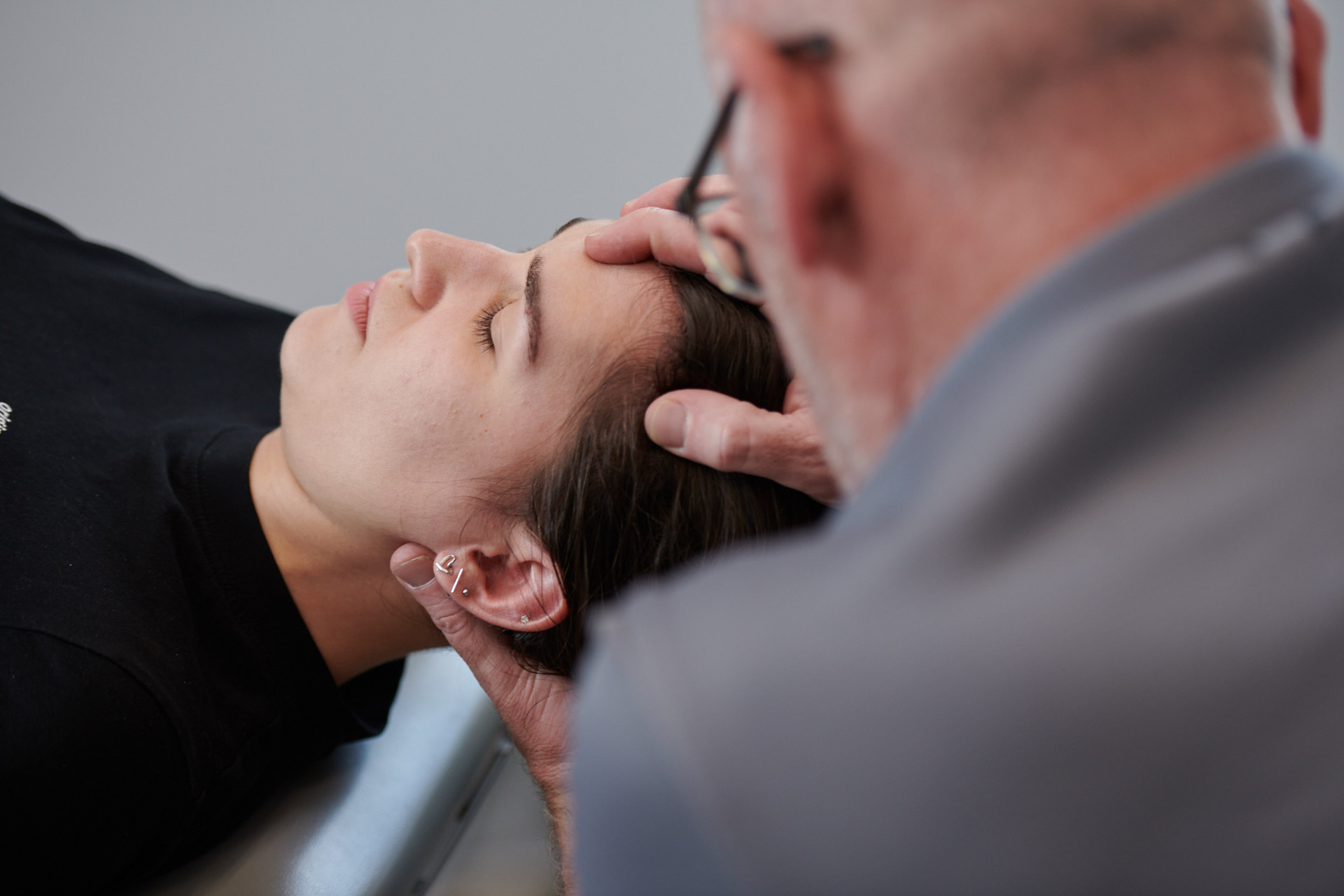Concussions can turn your world upside down, impacting everything from your ability to think clearly to how you feel emotionally. The recovery process can be equally disorienting, filled with uncertainty and unpredictable setbacks. It’s a journey that requires patience, resilience, and a deep understanding of the healing process. This comprehensive guide offers a beacon of hope and practical advice for individuals navigating the complexities of concussion recovery. We’ll explore the common stages of healing, the science behind concussion recovery, and effective strategies for managing symptoms and regaining your sense of self. At Concussion Hub, we’re committed to providing evidence-based information and support. Explore our resources, including articles on memory problems, an introductory audio guide, and personal recovery stories, to find the specific guidance you need on your path to recovery.
Key Takeaways
- Concussions affect your mental and emotional health: Expect changes in your thinking, emotions, and behavior after a concussion. These are normal responses to the brain injury and require specific attention during recovery.
- Recovery looks different for everyone: Healing isn’t linear and depends on various factors, including the severity of the concussion and your overall health. Be patient with yourself and focus on your individual progress.
- Take an active role in your healing: Prioritize self-care, seek support from healthcare professionals and loved ones, and actively participate in your recovery plan for the best outcome.
What are Mental State Changes After Concussion?
A concussion can significantly impact your mental state, affecting how you think, feel, and interact with the world. It’s common to experience cognitive impairments, such as difficulty concentrating, remembering things, and processing information quickly. These changes can make everyday tasks feel challenging, leading to frustration and confusion. You might struggle with conversations, find it hard to focus at work, or feel overwhelmed by simple decisions. These cognitive challenges are often a direct result of the brain injury.
Many people also experience emotional shifts after a concussion. Increased irritability, anxiety, or even depression are common responses to this type of trauma. These emotional disturbances can be incredibly distressing and might make you feel isolated or withdrawn, even from activities you once enjoyed. Some individuals describe feeling disconnected from themselves—almost like they’re observing their own lives from a distance. This sense of detachment can be disorienting and further complicate the recovery process. It’s important to remember that these mental and emotional shifts are a consequence of the injury, not a reflection of your character or strength. Research shows that these emotional changes are a common part of the post-concussion experience.
Concussion Hub understands the complex interplay of cognitive and emotional challenges after a concussion. Our resources offer practical advice and support for managing these changes. For instance, “Conquering Memory Problems After a Head Injury” offers specific strategies for dealing with cognitive challenges. Our “Introductory Audio Guide” provides a helpful overview of the recovery journey. The more you understand about the mental and emotional effects of a concussion, the better equipped you’ll be to manage your recovery and regain a sense of normalcy. The consensus statement on concussion in sport provides further information on the recovery process.
Why Is Concussion Recovery Unpredictable?
Recovering from a concussion isn’t a one-size-fits-all process. It’s a complex journey, and honestly, predicting how long it will take is tricky. One person might bounce back quickly, while another could experience symptoms for weeks or even months. This variability stems from several factors, and understanding them can help you manage expectations and feel more in control of your recovery.
Individual differences play a significant role. Your age, sex, and history of previous concussions all factor into the equation. Pre-existing conditions like migraines or learning differences can also influence your recovery path. It’s similar to how some people recover from a cold in a few days, while others take a week or more—everyone’s system is unique.
The wide range of concussion symptoms also contributes to the unpredictable nature of recovery. Concussions can affect you physically, mentally, and emotionally. You might experience headaches, dizziness, difficulty concentrating, or even mood changes. This complexity makes it tough to pinpoint a precise recovery timeline, as your experience might differ significantly from someone else’s.
Psychological factors are another important piece of the puzzle. Feelings of anxiety or depression after a concussion are common and can sometimes prolong recovery. It’s a stressful experience, and addressing any emotional challenges is just as important as addressing the physical ones.
Finally, the lack of standardized protocols for diagnosing and managing concussions adds another layer of complexity. Different healthcare providers might have different approaches, which can influence your recovery progress. Finding a provider specializing in concussions is key. They can help you navigate this complex process and create a personalized recovery plan. Concussion Hub offers resources like our introductory audio guide on concussion recovery. We also have articles on what to do after a concussion to provide practical advice and support.
Factors Influencing Recovery Time
Recovering from a concussion is a unique experience. Several factors influence your healing time, and understanding these can help you manage expectations and create a personalized recovery plan.
Concussion Severity
Concussions are no longer rated or graded according to severity. Factors like the force of the impact or whether or not there was a loss of consciousness do not always paint a clear picture of what to expect in terms of recovery timeline. You might be told that you have a “mild” concussion, but in truth a concussion is a concussion, and your symptoms, experience, and recovery are yours alone. Research has shown that certain risk factors may point to a lengthier recovery, such as high initial symptom load, pre-existing mental health disorder, pre-existing sleep disorder for example, but the presence of these factors does not necessarily guarantee a longer recovery. A review of concussion literature offers more detail on this topic. For practical advice on early steps and strategies after a concussion, visit this helpful resource.
Brain Chemistry
Concussions can disrupt the balance of neurotransmitters in your brain. These chemical messengers are essential for communication between brain cells. Imbalances can affect mood, sleep, concentration, and other cognitive functions. This research on neurochemical changes after concussion provides additional context. If you’re experiencing memory problems, this article on decoding memory problems after concussion may be helpful.
Pre-existing Mental Health
If you have experienced mental health challenges like anxiety or depression before your concussion, recovery might be more complex. A concussion can intensify pre-existing symptoms, making it harder to distinguish between concussion-related issues and those from prior conditions. Open communication with your healthcare team about your mental health history is key. This research explores how psychological factors influence injury recovery.
Support and Environment
A positive and supportive environment is crucial for recovery. Access to mental health resources, understanding from family and friends, and a supportive workplace can significantly improve your experience. Feeling supported reduces stress and improves overall well-being, both essential for healing.
Lifestyle Factors
Your daily habits also affect your recovery time. Prioritizing quality sleep, a nutritious diet, and appropriate physical activity can contribute to faster healing. These lifestyle factors support brain health and overall well-being, promoting a more efficient recovery. This article explores factors that predict quality of life, highlighting the importance of lifestyle choices in overall health and recovery. You can also find a personal story of concussion recovery on Concussion Hub, offering inspiration and practical tips.
Common Recovery Stages
Recovering from a concussion isn’t a straightforward path. It’s more like a winding road with unexpected turns. Understanding the common stages can help you feel more prepared and less alone in the experience. Keep in mind that everyone’s journey is unique, and these stages aren’t always linear. You might experience them in a different order or revisit a stage.
Initial Confusion
Immediately following a concussion, you might feel disoriented and unsure what just happened. This initial phase often involves headaches, dizziness, and difficulty concentrating. Simple tasks might feel overwhelming, and you may struggle to process information. This is a normal response to the brain’s injury. As explained in Understanding Concussion Recovery, “After a concussion, individuals often experience a range of symptoms that can lead to confusion and uncertainty about their condition.” This initial period can be unsettling, but it’s important to remember it’s a temporary phase. Focus on getting rest and seeking medical attention. Our audio guide offers helpful strategies for managing these early symptoms.
Growing Awareness
As the initial fog begins to lift, you’ll start to understand what’s happening and recognize the need for initial rest to promote recovery. This growing awareness is a positive sign, even if you’re still experiencing symptoms. The CDC’s guide for parents highlights this stage, stating, “As individuals begin to understand their symptoms and the implications of their concussion, they may start to recognize the need for rest and gradual return to normal activities.” This is a good time to learn more about concussion recovery and what you can do to support your healing. Our article on early steps and strategies offers practical advice.
Preparing for Change
Once you have a better grasp of your situation, you can start planning for recovery. This involves setting realistic goals and creating a plan that includes early rest, medical follow-ups, and a gradual return to your usual activities. Remember, healing takes time, and pushing yourself too hard too soon can hinder your progress.
Active Healing
This stage is all about actively participating in your recovery. You’ll likely be following medical advice, engaging in rehabilitation exercises, and gradually reintroducing physical and cognitive activities. This might include physical therapy, cognitive pacing strategies, and a phased return to sports or other activities. As Concussion Recovery: What to Expect explains, “During the active healing stage, individuals engage in rehabilitation exercises and follow medical advice to facilitate recovery.” This is a time to focus on building strength and stamina, both physically and mentally.
Ongoing Care
Even as you start feeling better, ongoing care is crucial. Recovery isn’t always a smooth upward trajectory. There might be setbacks, and symptoms can fluctuate. Regular check-ins with healthcare providers and monitoring your symptoms are essential for a safe and complete return to your daily life. Concussion Recovery: A Comprehensive Approach emphasizes that “Recovery from a concussion is not always linear, and ongoing care is essential.” Don’t hesitate to reach out for support if you’re struggling. Concussion Hub offers resources on memory problems and personal stories to help you feel supported throughout your journey.
How Professional Support Helps
Recovering from a concussion often involves a team of professionals, each with a specific role in your healing. Getting the right support can make a real difference in managing symptoms and ensuring a smoother recovery.
Neurologists & Concussion Specialists
Neurologists specialize in diagnosing and treating conditions of the nervous system, including concussions. They have a deep understanding of brain function and injury. A neurologist can accurately assess your concussion, rule out other problems, and create a personalized treatment recommendation. This plan will address both physical and cognitive symptoms, helping you safely return to your normal activities. The American Academy of Neurology offers more information on the role neurologists play in concussion management.
Mental Health Professionals
Concussions can significantly affect your mental well-being. You might experience anxiety, depression, or find it hard to concentrate. Mental health professionals such as Psychologists and counselors provide crucial support. They offer coping strategies for emotional challenges and create a safe space to process your experience. Therapy can be incredibly helpful in navigating the mental and emotional aspects of concussion recovery.
Occupational Therapists
Occupational therapists (OTs) help you regain independence in your daily life. After a concussion, everyday tasks can sometimes feel difficult. An OT assesses your abilities and develops a personalized rehabilitation plan. This might include cognitive exercises and strategies to optimize memory and attention, physical activities to regain strength and coordination, and practical strategies for managing daily routines. The American Occupational Therapy Association provides further details on the role of occupational therapy in concussion recovery. Working with an OT can empower you to return to work, hobbies, and other activities you enjoy.
Physiotherapists
Physiotherapists with special training in concussion rehabilitation, along with Chiropractors, and Athletic Therapists play a key role in concussion rehabilitation by addressing physical symptoms like neck pain, dizziness, balance problems, and exercise intolerance. They create personalized treatment plans that may include gentle neck exercises, balance or vestibular training, and gradual aerobic activity to improve autonomic regulation and exercise tolerance. Physiotherapists also help identify and manage issues like posture or movement patterns that could be contributing to your symptoms. Their goal is to help you regain strength, mobility, and confidence while reducing symptoms and supporting your overall recovery.
Self-Care for Faster Recovery
Taking an active role in your recovery journey can significantly impact your healing process. Here are some key self-care practices to incorporate:
Rest and Sleep
In the initial days following a concussion, rest is crucial. Think of it like hitting the reset button for your brain. The National Institutes of Health (NIH) emphasizes reducing both mental and physical activity for both children and adults in the first two days after injury. This means limiting screen time, and intense cognitive tasks. Use the 2-point symptom rule when determining what activities are manageable and for how long. The 2-point rule says that if symptoms increase by more than 2 points above baseline (on a 10-point scale) during a given task or activity, or if symptom-increases last longer than one hour after stopping the activity, it is a good idea to pull back for the time being. Rest doesn’t have to mean “do nothing.” It’s OK to lean into small symptom increases and allow for some activation and mental stimulation. Prioritize sleep—aim for consistent bedtimes and wake-up times to regulate your body’s natural sleep-wake cycle. Sufficient sleep allows your brain to repair and recharge, contributing to a smoother recovery. The University of New Hampshire also highlights the importance of early rest and sleep in their guidelines for students recovering from concussions.
Gentle Exercise
Early light exercise can be a game changer for concussion recovery. This doesn’t mean jumping back into your usual intense workout routine. Instead, think short walks, gentle stretching, or easy cycling. Balancing rest and activity is key, as gentle movement can improve mood, reduce stress, and promote blood flow, which supports healing. Listen to your body and stop if symptoms increase significantly. Speak with your healthcare provider about an exercise routine suitable for your symptoms and stage of recovery.
Brain-Boosting Nutrition
Nourishing your body with the right nutrients can support brain health and healing. Focus on a balanced diet rich in antioxidants, omega-3 fatty acids, and vitamins. Colorful fruits and vegetables, fatty fish, and whole grains are excellent choices. Consider adding foods rich in B vitamins, such as leafy greens and legumes, which play a role in nerve function. Hydration is also essential, so drink plenty of water throughout the day. Avoid ultra-processed foods, and foods high in refined sugar.
Stress Management
Managing stress is crucial during concussion recovery. Stress can worsen symptoms and hinder the healing process. Explore relaxation techniques like deep breathing exercises, listening to calming music, or spending time in nature. If stress feels overwhelming, consider talking to a mental health professional. They can provide personalized strategies to help you cope effectively.
Mindfulness and Meditation
Practicing mindfulness and meditation can be valuable tools for managing anxiety and improving focus, both of which can be challenging after a concussion. Even a few minutes a day of focused breathing or guided meditation can make a difference. Numerous apps and online resources offer guided meditations for beginners. These practices can help you cultivate a sense of calm and improve your overall well-being during recovery.
Build Resilience and Self-Trust
Recovering from a concussion can be challenging, both physically and mentally. Building resilience and self-trust is key to navigating this journey. You might experience emotional ups and downs, so learning to trust your own intuition and strength becomes incredibly important. This means recognizing your abilities and cultivating a positive mindset. Think of resilience as your inner strength, helping you bounce back from setbacks and keep moving forward. It’s about believing in your capacity to heal.
Develop Coping Strategies
Developing effective coping strategies is essential for managing concussion symptoms. This includes learning how to communicate your needs and feelings, which helps create a supportive environment. Clearly expressing yourself makes a real difference in how others understand and assist you. Also, explore mindfulness practices and relaxation techniques to help manage stress and anxiety during recovery. Think of these strategies as your toolkit for handling difficult moments and staying grounded. Concussion Hub offers an introductory audio guide on navigating concussion recovery, which can be a helpful resource.
Practice Self-Compassion
Be kind to yourself throughout this process. Practicing self-compassion is crucial. Research shows that self-forgiveness and compassion can reduce anxiety and depression. Acknowledging your struggles while treating yourself with kindness creates a much healthier recovery environment. Remember, recovery isn’t linear; there will be good days and bad days. Self-compassion helps you navigate both with greater ease.
Set Realistic Goals
Setting realistic goals is a cornerstone of concussion recovery. Understanding the typical stages of recovery can help you set achievable milestones, allowing you to track your progress and stay motivated. A structured approach provides clarity and direction, breaking down the recovery process into smaller, manageable steps. Don’t feel pressured to rush. Focus on making steady progress, one step at a time. Concussion Hub provides helpful advice on early steps and strategies after a concussion.
Celebrate Small Wins
Celebrating small wins along the way can significantly increase your motivation. Acknowledge and reflect on every bit of progress, no matter how small. This fosters gratitude and encourages you to keep going. These small victories build momentum and reinforce positive behavior, strengthening your resilience and reminding you of how far you’ve come.
Why a Strong Support Network Matters
Recovering from a concussion can feel isolating. Building a solid support system is key to navigating the ups and downs of recovery. Connecting with others, sharing your experiences, and having people to lean on can make a real difference in your healing journey. This support can take many forms, from open communication with loved ones to finding community with others who understand what you’re going through.
Communicate Effectively
Talking openly about your symptoms and needs is crucial. It’s okay if you’re struggling with memory problems, difficulty concentrating, or emotional changes—let your healthcare providers, family, and friends know what you’re experiencing. Clear communication helps everyone understand your recovery process and how they can best support you. Sometimes, simply expressing your feelings can make a world of difference.
Family and Friends
Your family and friends can be your biggest cheerleaders during recovery. They can offer emotional support, a listening ear, and practical help with daily tasks. Maybe they can pick up groceries, drive you to appointments, or just hang out and watch a movie with you. Having loved ones who understand and respect your limitations is essential for healing. Don’t hesitate to ask for help when you need it—your support system is there for you. To learn more, read about the importance of family support during concussion recovery.
Support Groups & Online Communities
Connecting with others who have experienced concussions can be incredibly validating. Support groups and online communities provide a safe space to share your experiences, ask questions, and offer encouragement to one another. These connections can help combat feelings of isolation and provide valuable resources and insights. Knowing you’re not alone can make a significant impact on your emotional well-being. Learn more about the role of support groups in concussion recovery.
Create a Supportive Environment
Your physical environment plays a role in your recovery too. Create a calm and restful space at home where you can relax and recharge. Minimize stressors like loud noises and bright lights, and prioritize getting enough sleep. Open communication with your family about your needs can help them create a supportive environment that promotes healing. Remember, taking care of your physical and emotional needs is essential for a smooth recovery. Our article on early steps and strategies after a concussion offers additional advice.
Recognize Recovery Progress
Recovery from a concussion isn’t a straight line. It’s often gradual, with ups and downs along the way. Learning to recognize even small improvements can make a big difference in your outlook and motivation. While some symptoms might linger, noticing positive changes can be incredibly encouraging. For a helpful overview of the recovery journey, explore our introductory audio guide.
As you heal, you’ll gradually resume daily activities. The American Academy of Neurology emphasizes the importance of a gradual return to work, school, or sports. If you can participate in these activities without a significant increase in symptoms, you’re moving in the right direction. Start slowly and gradually increase your involvement as tolerated.
Cognitive function is another key area to watch. The Brain Injury Association of America points out that improvements in memory, focus, and information processing are important recovery indicators. You might find it easier to follow conversations, recall information, and think clearly. These cognitive gains are significant milestones. We also have a helpful article decoding memory problems after concussion.
Finally, remember that recovery isn’t just physical; it’s emotional too. The Concussion Legacy Foundation stresses the importance of emotional well-being after concussion. As your brain heals, you may notice improvements in your mood and emotional stability. Pay attention to these positive shifts, as they are just as important as physical improvements. Recognizing these emotional gains can be a powerful reminder of your resilience and progress. Reading personal recovery stories can also provide inspiration and support during your journey.
Embrace a Growth Mindset
Recovering from a concussion can be challenging, but your mindset plays a crucial role in how you handle the process. A growth mindset, one where you believe in your ability to learn and adapt, can significantly impact your recovery. It helps you view challenges as opportunities for growth, not insurmountable obstacles. This is especially important when dealing with the unpredictable nature of concussion recovery. Learn more about coping with memory problems after a head injury.
Think of your brain as a muscle that can heal and strengthen over time. Just as you wouldn’t expect to run a marathon after a leg injury without proper training, you need to give your brain time and support to recover from a concussion. Focusing on a positive mindset can make a real difference in how you cope with the ups and downs of healing.
One key aspect of a growth mindset is letting go of negativity. Creating a supportive environment is essential. This might involve reducing stressors, setting healthy boundaries, and limiting exposure to negativity. When you prioritize your mental well-being, you create space for your mind to heal and focus on recovery. One person’s concussion recovery story highlights how letting go of toxic relationships and focusing on self-care contributed to their healing. Explore additional resources and support available to you.
Another important element is surrounding yourself with positive influences. Connect with people who uplift and inspire you. Reading stories of others who have recovered from concussions can be incredibly motivating. These stories remind you that healing is possible and you are not alone. Believing in your ability to recover is a powerful tool. Find practical advice and strategies for early concussion management.
A growth mindset also involves understanding that setbacks are normal. There will be good days and bad days. Don’t get discouraged by a temporary increase in symptoms or a slower-than-expected recovery period. View these challenges as opportunities to learn more about your body and adjust your approach. The key is to keep moving forward, even if it’s one small step at a time. Find inspiration in another’s journey from a devastating fall to a triumphant return. By embracing a growth mindset, you can cultivate resilience, develop coping strategies, and ultimately achieve a successful recovery.
Frequently Asked Questions
Is it normal to feel anxious or depressed after a concussion?
Absolutely. Emotional shifts like anxiety, irritability, and even depression are common after a concussion. It’s a stressful experience, and your mental state is affected just like your physical state. Don’t hesitate to seek support from a mental health professional if you’re struggling. They can provide coping strategies and a safe space to process your experience.
How long does it take to recover from a concussion?
There’s no easy answer to this. Recovery time varies significantly from person to person. Factors like the severity of your symptoms, your individual health history, and even your support system all play a role. Some people recover within a few weeks, while others experience symptoms for months. Be patient with yourself and focus on the progress you’re making, no matter how small.
What can I do to support my recovery?
You have more control over your recovery than you might think. Prioritizing a gradual return to activity and a consistent sleep routine is crucial, especially in the early stages. Aim for light exercise as tolerated and focus on a nutritious diet. Managing stress through relaxation techniques and mindfulness practices can also make a big difference. And don’t underestimate the power of a strong support network. Talking to loved ones and connecting with others who understand what you’re going through can be incredibly helpful.
What kind of professional help is available for concussion recovery?
A team of professionals can support your recovery journey. Neurologists and concussion rehabilitation providers diagnose and manage your physical and cognitive symptoms. Mental health professionals address emotional challenges like anxiety and depression. Occupational therapists help you regain independence in daily tasks. Working with these professionals can provide a comprehensive approach to healing.
How do I know if I’m making progress?
Recovery isn’t always a straight line, but there are ways to recognize progress. Keep track of your symptoms and notice any improvements, even small ones. Are you having fewer headaches? Sleeping better? Finding it easier to concentrate? These are all positive signs. Also, pay attention to how you’re managing daily activities. If you can gradually return to work, school, or hobbies without a significant increase in symptoms, you’re moving in the right direction. Celebrate these milestones, no matter how small.






